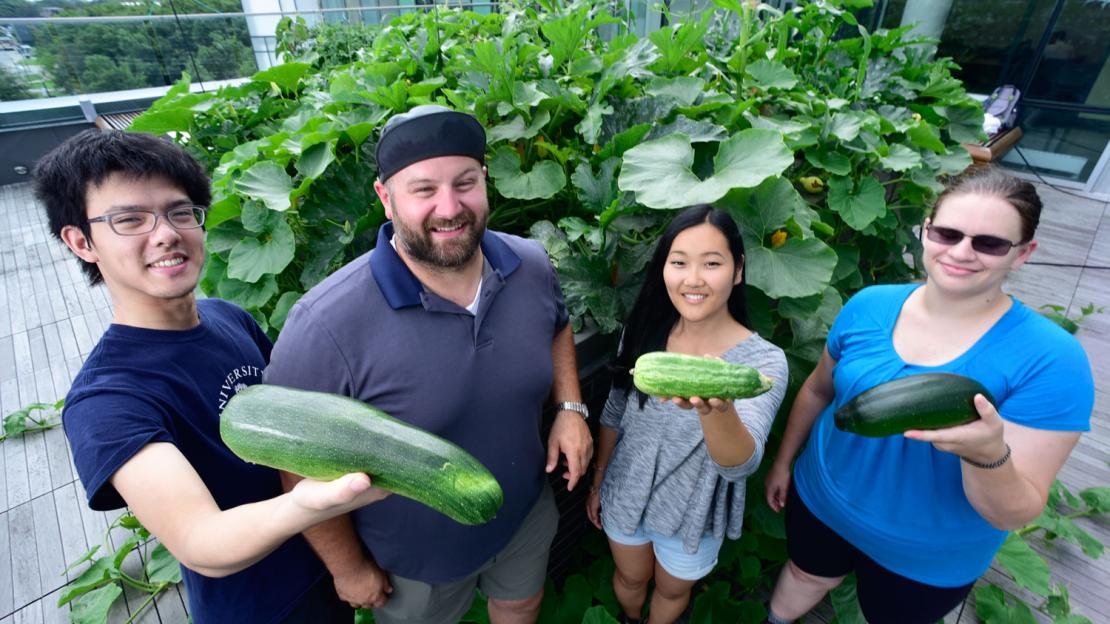The rooftop garden atop the Instructional Centre (IC) is flourishing thanks to a coordinated effort between the Department of Physical and Environmental Sciences and the Sustainability Office.
U of T Scarborough’s Environmental Studies program hosted a rooftop gardening event in late March, and more than 75 students showed up. That’s what sparked the success of the initiative, says Nicole Klenk, assistant professor in the Department of Physical and Environmental Science.
“The turnout really mobilized support for the rooftop garden, which we were able to turn around in a very short period of time,” says Klenk, whose research focuses on the role of environmental science in society including climate change adaptation and environmental governance.
The hope, she adds, is to eventually convert the garden from its current high input and high yield state into something more sustainable – a mini ecosystem of sorts that is less demanding of water, nutrients and labour.
If experimental equipment can be put in place the garden could be used for research and teaching on a range of topics including soil moisture and nutrient cycling, air temperature and micro climate measurements, pollinators, crop productivity and food diversity, among others.
“It could be used by environmental studies, environmental sciences, biology, city studies, and food studies,” she says, adding that diverse crops from around the world can also be planted for teaching purposes by the Culinaria Research Centre.
The site for the garden was originally built during the construction of the IC but had become overgrown in recent years. The process of transforming the garden began early this summer and by mid-June all the vegetable crops were planted.
The garden covers 38 square metres (410 sq. ft.) of growing space in a total of five planters, and was tended over the summer by Samantha Moore, a Masters in Environmental Science at UTSC, along with various volunteers. A total of 30 different crops were grown including cardamom, hops, corn, squash, beans, basil, thyme, mint, sage, dill, tomatoes, peas cucumber, lavender and tomatillos, to name a few.
The produce from the rooftop garden along with the sustainability gardens in the valley are being used in cooking demonstrations and workshops at the UTSC Farmers Market. The produce will also feature as ingredients used in Food Discussion Cafés where participants learn more about the origins of food they are preparing.
“Faculty and staff are welcome to take part in our Food Discussion Cafés, and they can also contact us if they have any ideas on how they would like to use some of the produce because we have quite a bit,” says Tim Lang, manager of the Sustainability Office.
For more information about the food cafés or gardens on campus, visit the Sustainability Office website.
Faculty interested in developing curriculum on rooftop gardening, food diversity and community-engagement in food security issues that can be integrated into their research and teaching can contact Nicole Klenk.
